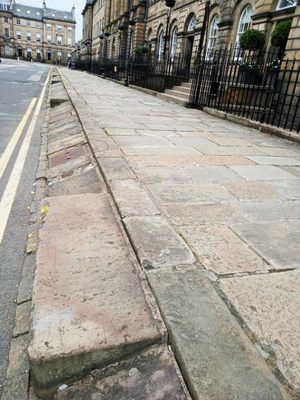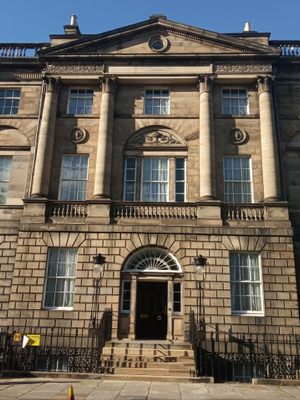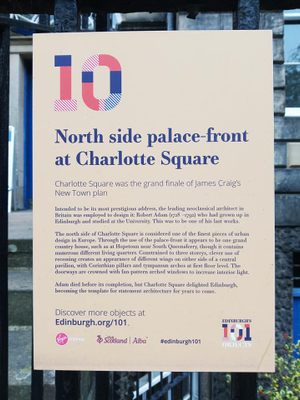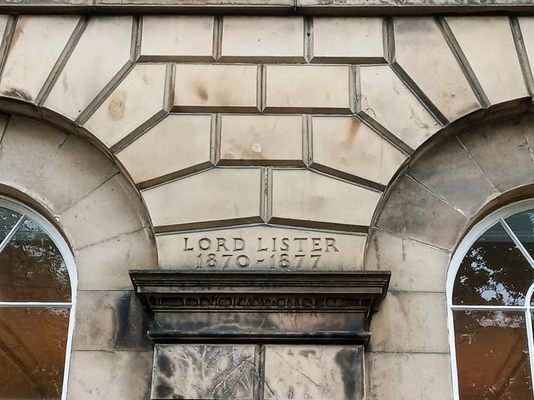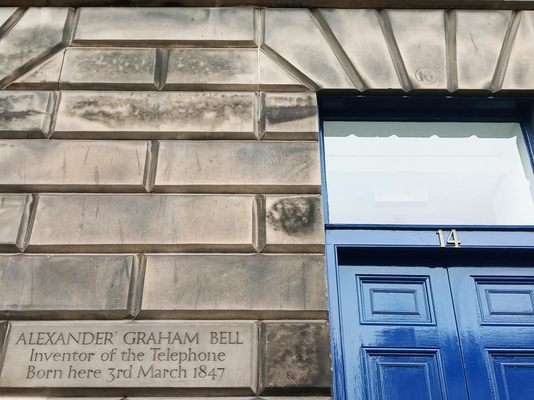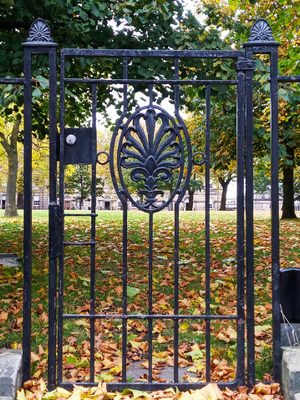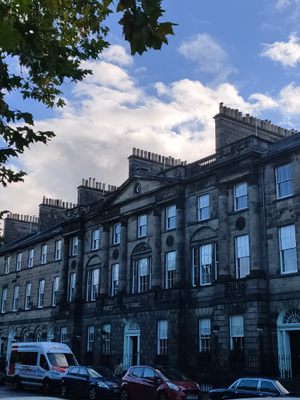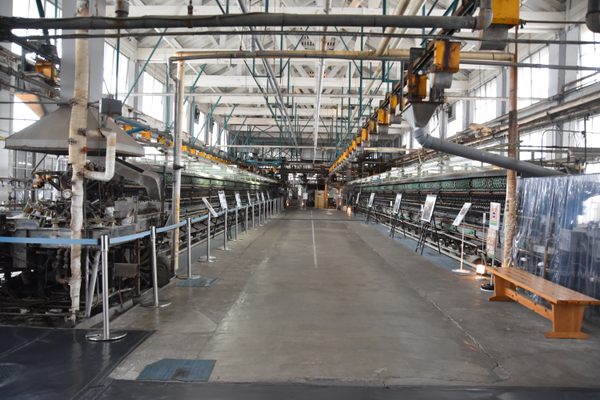About
Situated on the western edge of George Street is an open piece of land that was the work of the architect Robert Adam. The square was named after Queen Charlotte, wife of King George III. It didn't take long for the square to become one of the most sought after locations to live in Edinburgh. It was seen as the city's answer to the overcrowding and dingy aspects of the Old Town. Charlotte Square soon became home to some of the Scottish Enlightenment's brightest thinkers, surgeons, and aristocrats. Many of the features from this bygone era can still be found around this UNESCO World Heritage Site.
Concentrating in the northern quadrant of the square, visitors will encounter several hidden architectural features from the 1700s that remain standing strong to this day. Posted like two guarded sentries are a set of ironwork lamp posts. Each of these light fixtures were originally fuelled by gas. It would have been the job of lamplighters also known as leeries to ignite and extinguish these units. Along many of the posts is a flute-like feature that was used by leeries to extinguish the open flame.
Many famous residents have had, or currently have, addresses on this notable plaza. Alexander Bell, the inventor of the telephone, lived at No. 14 S. Charlotte Square. No. 9 Charlotte Square was home to the pioneer of antiseptic medicine, Lord Lister of Listerine fame. Bute House, No. 6 Charlotte Square is the No.10 Downing Street of Scotland, as this is where the country's First Minister resides.
Though the horse-drawn carriages, sedan chairs, and leeries with their ladders have long since vanished, there are still many remnants of a bygone era around the square to view and ponder over.
Related Tags
Know Before You Go
The Square is open all year. Several other characteristics include mounting blocks used for the loading and unloading of horse-drawn carriages, and doors specifically designed for sedan chairs.
Though Charlotte Square covers a wide area, the aforementioned architectural details are contained along the northern side, in front of The Georgian House, at number 7 Charlotte Square. This building also acts as a museum, open to the public, (10 a.m.- 4:15 p.m.), and showcases the 18th century interior. The price of admission includes access to all three floors.
Flavors of Scotland: Beyond the Haggis
Smoked seafood, single malt whisky, and warm hospitality.
Book NowPublished
March 4, 2019









